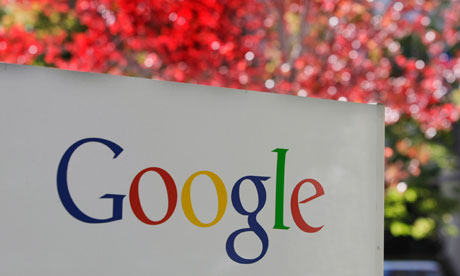
Google has been accused of abusing its market dominance.
The news that the EU has decided to investigate whether Google is abusing(滥用) its dominance(支配地位,控制力) of the market for internet searches naturally led your columnist(专栏作家) to type "Google abuses market dominance" into, well, Google. In 0.19 seconds it reported 4.4 million results.
The same query(问题) typed into Bing, Microsoft's search engine, produced only 362,000 hits. On the other hand, typing "Microsoft abuses market dominance" into Bing produced only 218,000 results, whereas the same query produced 665,000 results in Google. From which we can draw two conclusions. The first is that the algorithmic(算法的) machinations(阴谋诡计) of search engines, like the Peace of God, passeth all understanding. The second is that the EU is about to spend a few years, and several million euros(欧元), coming to the same conclusion.
The proximate(相近的,类似的) cause of the EU's decision to launch an investigation is a series of complaints from three specialist search engines: ciao, owned by Microsoft; ejustice.fr, a French legal search engine; and Foundem, a British price-comparison site. Their beef(抱怨) is that Google's non-paid-for search results deliberately favour its own "Shopping" service and disadvantage them.
Given that Google has effectively about 90% of the search market in the UK, it clearly has considerable power. There's a widespread feeling in small business circles that if Google can't – or won't – find your site, then you effectively cease to exist in cyberspace. Actually, it's more subtle than that: Google will always find your site, but its secret page-ranging algorithms may put it on page 35 of the results of a search for products or services that you supply. And, given that virtually nobody looks beyond the first page, being on page 35 is the same as being posted to Siberia(西伯利亚).
In order to see whether Google's competitors have indeed been so cruelly abused I typed "Apple iPod Touch prices compare" into Google, Bing and Yahoo. Google produced 69.4 million results. The first three on the page were paid-for ads, clearly identified as such. Next came a set of three results from Google's own Shopping engine. The next three results were for UK price-comparison sites, followed by two links to Apple stores, then another UK price-comparison site – and then a link to Foundem. So one of the EU's complainants(发牢骚的人,原告) was eighth on the first page of the Google results.
But it was on the front page. Bing produced 256,000 results and Foundem was the fourth link on the front page. On Yahoo (20.8m results), Foundem came third on the front page.
What does this prove? One would need a sophisticated testing methodology(一套方法,方法学) – and millions of automated(自动的) searches – to even begin to reach a conclusion that might outflank(侧翼包围) the lawyers and technical experts that Google will muster(召集). But maybe that is what the EU has in mind.
News of the investigation highlighted the gulf(分歧,鸿沟) that separates the Anglo-Saxon world from what Don Rumsfeld used to call "Old Europe".
Danny Sullivan, a respected expert on search engines, for example, posted a witheringly sarcastic comment on his site. "I did a search at Google today for 'cars' and was shocked," he wrote.
"Rather than list links allowing me to search for 'cars' on Bing, Yahoo, Baidu, Voila, Naver and Yandex, Google instead favoured its own search results. I'm glad the EU will be investigating whether this favouritism violates(违反) anti-trust laws."
Google is widely admired in this country and in the US, but regarded with deep suspicion on the continent. The Germans seem particularly hostile – as seen, for example, in their opposition to Google Streetview – but the French and Italians are also pretty antagonistic(对抗性的) and it's possible that some of this antipathy has infected the European Commission.
On the other hand, Google is now overwhelmingly(压倒性地) dominant(占主导地位的) in one of the most important markets in the modern world – internet search. The company has made great play with its corporate slogan "Don't be evil".
But in the end it's a commercial company, not a charitable foundation.
And the company that enjoyed monopolistic(垄断性的) power and did not abuse it has yet to be incorporated. Those old Europeans are right to be suspicious.

